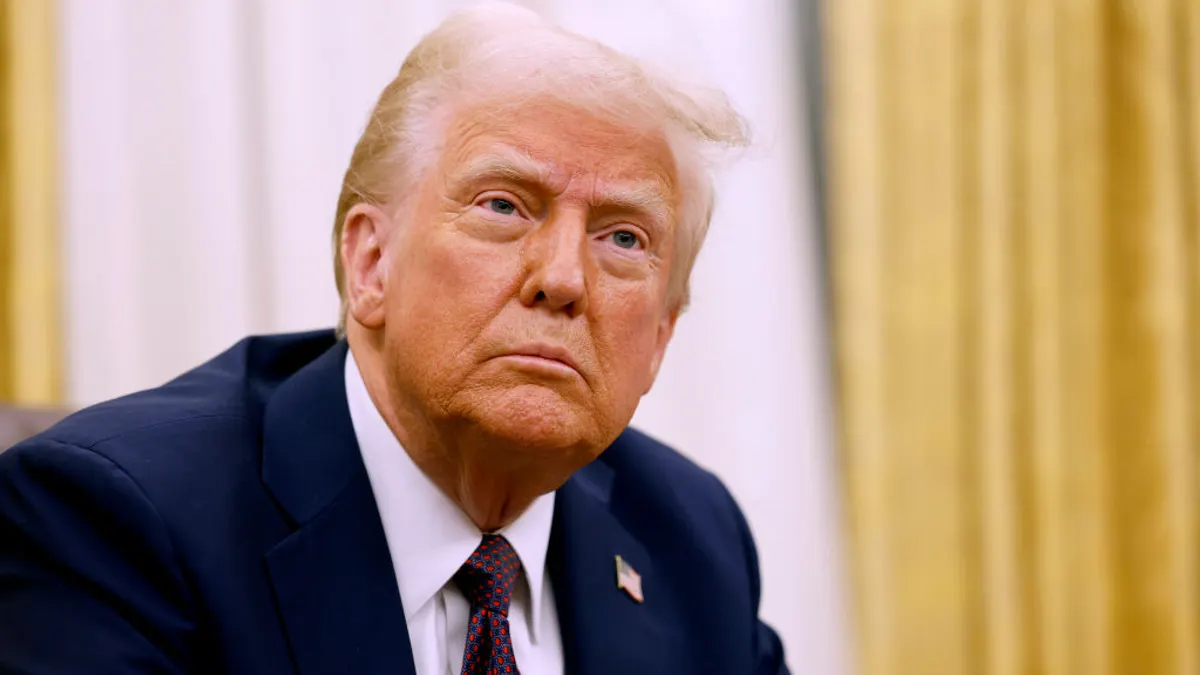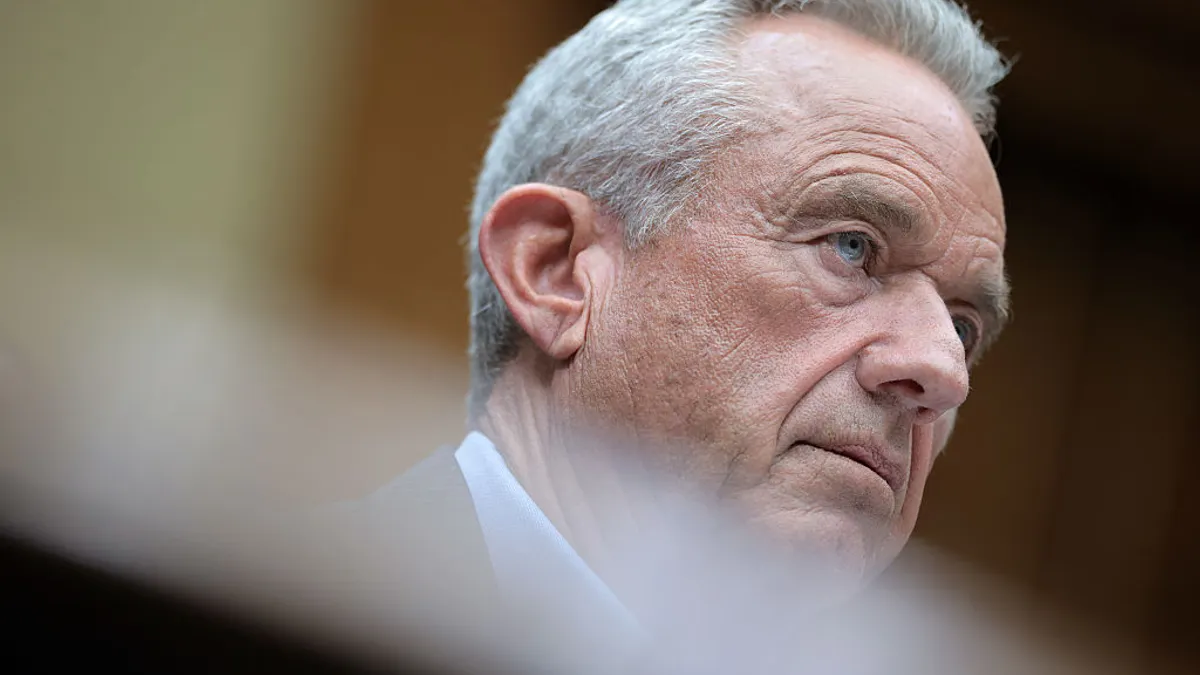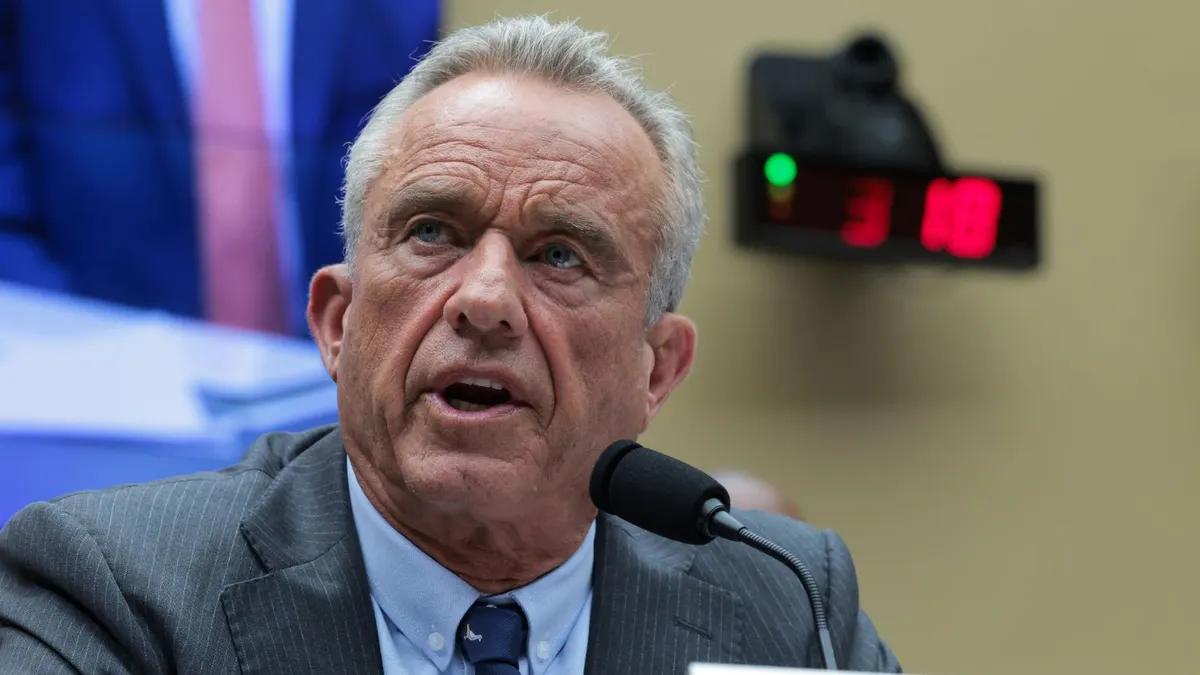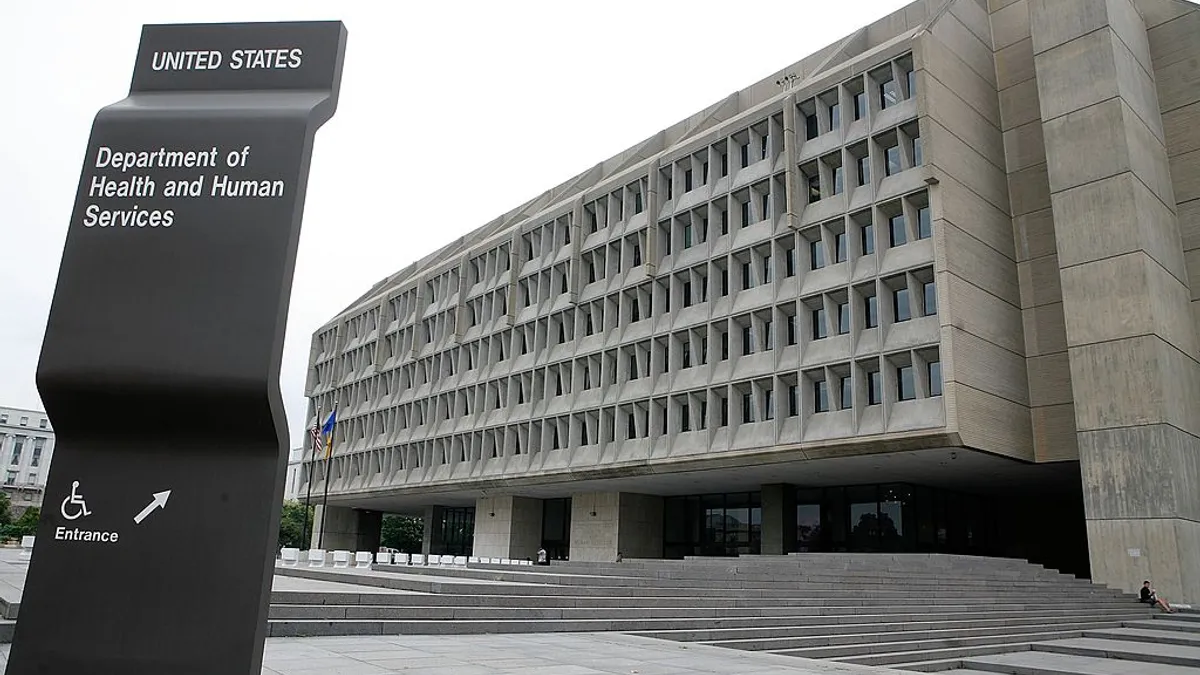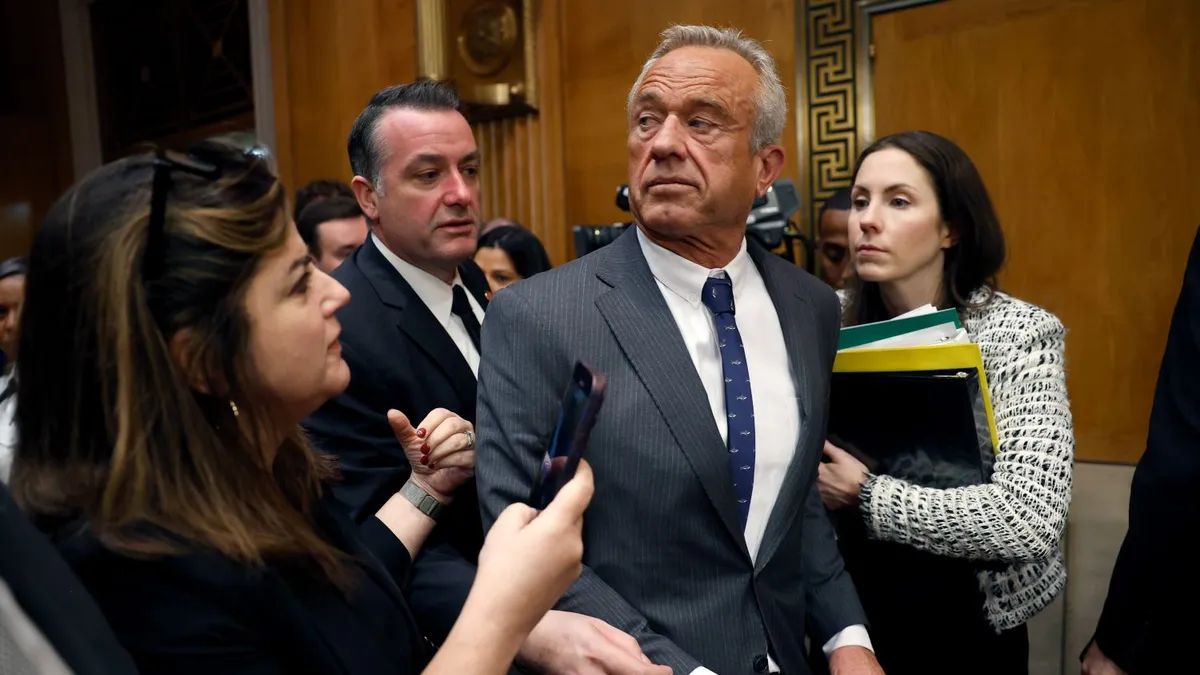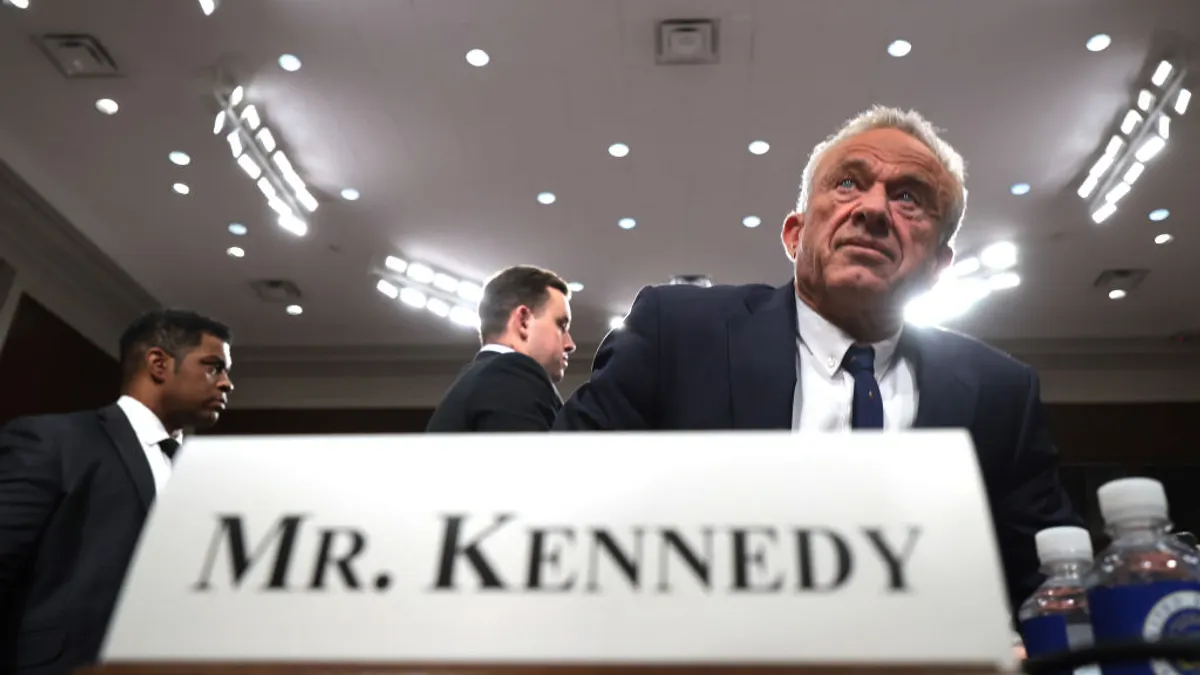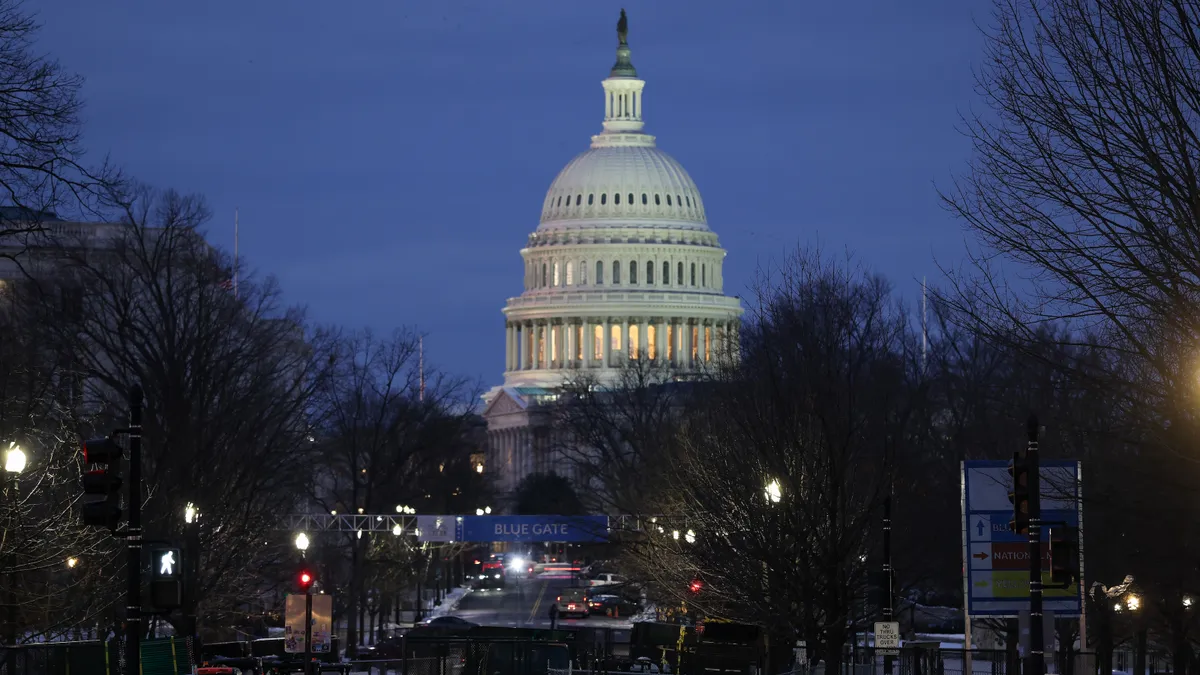The Trump administration is freezing a massive swath of government funding until agencies review their programs for compliance with the president’s recently signed executive orders, sparking widespread confusion and worry within the healthcare industry.
The move — likely unconstitutional given Congress, not the president, has the power of the purse — could seriously harm healthcare providers nationwide, many of which rely on federal grants to operate. The freeze could even pause federal Medicaid funding to states, according to experts.
The pause does not apply to Medicare and Social Security benefits, or grants and loans that are directly provided to individuals, according to a memo from the Office of Management and Budget.
Besides those carveouts, the wording of the funding freeze is vague, experts said. That makes it difficult to ascertain what specific healthcare funds will be affected.
“This memo was broadly drafted,” said Julian Polaris, a partner at the legal and consulting firm Manatt. “We’re waiting to see which programs agency staff identify as subject to the pause or not.”
Freeze of federal aid
On Monday, Trump’s acting budget director sent a memo to department heads directing them to halt all financial assistance, including grants and loans, starting today at 5 p.m. ET. Agencies have to submit detailed information on all their spending to the Office of Management and Budget by Feb. 10.
Programs can resume after the OMB certifies they align with Trump’s orders, which range from ramping up the deportation of illegal immigrants to ensuring federal dollars aren’t being spent to fund abortion care.
The Department of Health and Human Services said it is focused on the latter order.
The agency will reevaluate all programs, regulations and guidance to make sure they don’t pay for or promote elective abortions, Dorothy Fink, acting HHS secretary, said in a statement Monday — the HHS’ first public communication since Trump took office Jan. 20, amid broader pause on public messaging.
HHS’ civil rights office said it also enforces conscience and religious exercise laws nationwide, and will review its regulations and guidance in those areas to “strengthen enforcement” of those laws, Fink said.
Such laws been used by providers to justify refusing services to LGBTQ individuals and by pharmacists to refuse dispensing medication used for miscarriages.
HHS did not respond to a request for more information, including on what financial assistance would be paused pending OMB review.
Implications for healthcare
A significant portion of federal grants are related to healthcare. The funding suspension could therefore temporarily halt a large number of programs, freezing billions of dollars in payments to health centers, hospitals, universities and research groups nationwide.
HHS currently has nearly 38,000 active grants, according to government data. Across all awards and contracts, including grants, the department has authorized $714.5 billion in spending for the 2025 fiscal year.
HHS grants fund programs from the Centers for Disease Control and Prevention to support public health, research opportunities from the National Institutes of Health and initiatives from the Administration of Children and Families to improve the well-being of needy communities.
They also go to states for Medicaid, the safety net insurance program that currently covers almost 80 million Americans.
The federal government helps states fund Medicaid through open-ended grants that, as the memo is worded, could be affected by the freeze. If the pause extends long enough — Washington matches state Medicaid funding on a quarterly basis — it could throw state spending into disarray, as the federal government covers at least half of states’ Medicaid costs.
In 2023, federal and state governments spent $871.7 billion on Medicaid, with the federal government covering $591.4 billion, according to the CMS.
A pause in Medicaid funding “would be disastrous for states,” Joan Alker, executive director of Georgetown University’s Center for Children and Families, said in a statement.
However, Medicaid could be exempt from the order, as a pause would be inconsistent with the law under which the federal government matches state Medicaid payments, Sam Bagenstos, a law professor at the University of Michigan and OMB general counsel from 2021 to 2022, wrote on Bluesky.
“On our read, agencies should not pause activities that are legally mandated” like Medicaid payments to states, Polaris said. “It’s basically an exception to the pause.”
Even if there is a pause for a few weeks, “it shouldn’t have a big effect on states” given the quarterly nature of Medicaid payments, according to Polaris. States could also move money around to protect their normal operations.
Should the pause last longer, states may have to delay payments to providers or insurers, which could harm Medicaid beneficiaries’ ability to access care, said Matt Fiedler, a senior fellow at the USC-Brookings Schaeffer Initiative for Health Policy.
State Medicaid programs are uncertain whether the freeze applies to their funding or not, however.
“We are still trying to assess and understand the implications of the OMB memo on Medicaid and other public health insurance programs,” Amir Bassiri, New York’s Medicaid director, said over email. “There are differences of opinion with regards to the interpretation of the memo and this is still being analyzed legally.”
Medicaid aside, the financial health of many providers would be affected by a pause in financial assistance from Washington.
Federal grants are the main source of funding for health centers, the thousands of outpatient clinics that provide primary care in underserved areas, according to the National Association of Community Health Centers. Similarly, many reproductive health providers rely on Title X grants to provide family planning and preventive health services to low-income individuals.
U.S. hospitals also receive a number of grants to bolster and train their workforce, help prepare them for disasters and emergencies and expand services in rural areas, among other initiatives.
However, “it’s a program-by-program and grant-by-grant analysis,” so it’s not clear exactly what the Trump administration might allow to continue versus move to cut, Polaris said.
An unconstitutional order
With the memo, Trump is asserting the president has the unilateral power to halt funding that’s already been approved by Congress, a move that conflicts with the Impoundment Control Act of 1974.
Currently, federal agencies are allowed to pause financial assistance for review, but only under certain conditions, according to a brief from law firm Akin. Taxpayer dollars must still be spent as Congress directed. The executive branch can’t decide to refuse entirely how appropriated funds are spent without getting congressional approval.
The order raised alarm among Democrat lawmakers.
“Congress approved these investments and they are not optional, they are the law,” Senate Minority Leader Chuck Schumer, D-N.Y., said via X on Monday.
Trump might not want to stop the flow of federal dollars, but is instead using the freeze as a pretext to make the case for an aggressive interpretation of executive power moving forward, according to Fiedler.
“The memo is unclear,” Fiedler said. “Pause the funding unless it’s inconsistent with other law. The question is — what’s inconsistent with federal law, and what federal law are we talking about, and how will that be applied in practice?”



